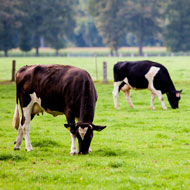‘Critical’ role of vets recognised in Brexit report

“It is reassuring to see that animal welfare is high on the agenda for future negotiations around trade in food."
MPs are calling on the government to support the veterinary workforce, so it can meet the needs of the UK’s food industry after Brexit.
The recommendation came in a new report, ‘Brexit: Trade in Food’, which was published by the Environment, Food and Rural Affairs (EFRA) Committee.
Authors of the report said non-British EU veterinary surgeons are ‘critical’ to the UK’s veterinary workforce. They urged the government to set out how it will ensure working rights for these vets currently in the UK, and how it will support the veterinary workforce going forward.
MPs also said the UK’s high animal welfare, environmental and food standards must not be ‘sacrificed on the altar of cheap imports’. The committee said it would hold environment secretary Michael Gove to his assurances that these standards will not be compromised.
Commenting on the report, BVA president John Fishwick said: “We welcome the strong message this report conveys on the need to maintain the UK’s high animal welfare, environmental and food standards in trade as we leave the EU.
“It is reassuring to see that animal welfare is high on the agenda for future negotiations around trade in food and that the vital role of vets in upholding these standards is fully recognised by the EFRA Committee.”
The report also calls for better country of origin labelling and mandatory method of production labelling when we leave the EU. Mr Fishwick said the BVA hopes this will include clear labelling on the method of slaughter so consumers can make an informed choice about eating meat from stunned or non-stunned animals.
He added: “We look forward to seeing how these recommendations are taken forward by the Government to ensure that the veterinary workforce is fully supported and the UK has the capacity to meet the challenges that Brexit may pose in trade in food.”



 The latest
The latest